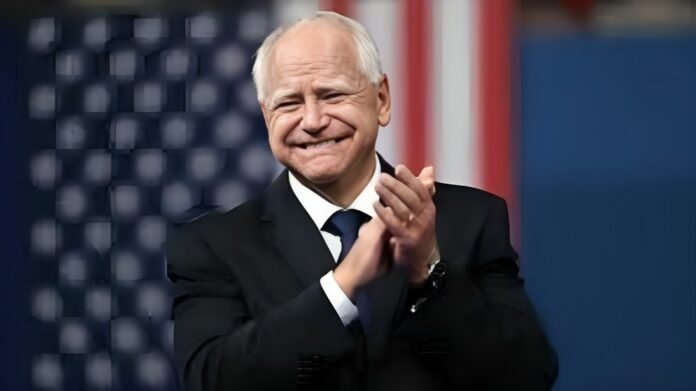Republican critics accused Tim Walz of being pro-China after he won the Democratic nomination for vice president. “Communist China is very happy. No one is more pro-China than Marxist Walz,” tweeted Richard Grenell, who served as U.S. ambassador to Germany under Donald Trump. Republican Senator Tom Cotton also asked about what he called Walz’s “unusual, 35-year relationship with Communist China.” MAGA War Room, a pro-Trump account, pointed to a 2016 video where Walz said the U.S. and China need not have an “adversarial relationship.”
Walz’s Record with China Tim Walz’s
Walz has a decades-long history with China. It began in 1989, shortly after college, when he participated in a Harvard University volunteer program, teaching American history and English at Foshan No. 1 High School in southern China. He later started a business with his wife, Gwen, that organized educational trips to China over more than a decade, involving around 30 trips there.
But despite those connections, Walz has taken a hawkish stance on China — particularly human rights. As a congressman, he met with figures such as the Dalai Lama and Joshua Wong, a leading Hong Kong democracy activist who are both critical of the Chinese government and considered enemies by Beijing.
He served for more than a decade on the Congressional-Executive Commission on China, which focuses on human rights abuses by the Chinese government. In 2016—the same year he met the Dalai Lama—Lobsang Sangay, leader of Tibet’s government-in-exile, visited his congressional office, where Sangay met Minnesota high school students.
He also backed the Hong Kong Human Rights and Democracy Act, which imposed sanctions on human rights abuses during democracy protests in Hong Kong. Democracy activist Jeffrey Ngo, based in the U.S., praised him for being dedicated to getting the legislation passed and said Walz was the only House Democrat who consistently co-sponsored the bill along with Republican Chris Smith.
Chinese social media reaction to Tim Walz’s
Tim Walz’s nomination has drawn attention on Chinese social media. Some users expressed hope that his background might help improve U.S.-China relations, with one Weibo user writing that Walz’s “unique background gives him a real perspective on China” and could facilitate cultural exchanges.
But skepticism remains. The fact that Walz was in China during the 1989 Tiananmen Square massacre did not escape notice — though Chinese users were constrained by censorship from directly mentioning it in connection with him. Instead, comments suggested that foreigners present during the events might be the most critical of China. Walz has publicly condemned the Tiananmen Square crackdown and co-sponsored a resolution in 2009 marking its 20th anniversary; his wife Gwen has said Walz chose June 4, the day of the massacre, as their wedding date to commemorate its profound impact on him.


